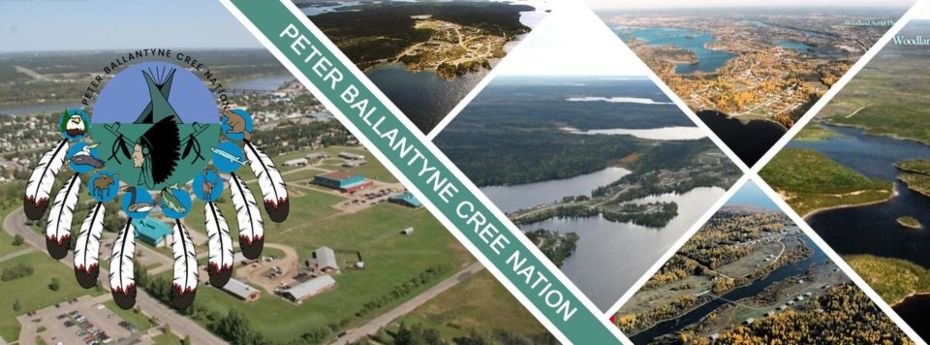Economic growth can be challenging for remote communities due to isolation, limited infrastructure, and a lack of job opportunities. For Indigenous communities like the Peter Ballantyne Cree Nation (PBCN) in Canada and rural regions in Ireland, finding ways to generate sustainable income has always been a priority. With the rise of online casinos, these communities have discovered a new potential revenue source that can drive economic development without requiring physical infrastructure or large-scale investment.
Online gambling is revitalizing economies that once relied on tourism and natural resources. In rural Ireland, the best online casino in Ireland driving innovation in the industry is at the forefront of this shift, offering fresh opportunities in tech, marketing, and customer service.
Economic Challenges in Remote Communities
Remote communities often face economic struggles due to their geographical isolation. In Canada, Indigenous communities like PBCN contend with limited access to infrastructure, education, and healthcare, which leads to fewer job opportunities. In Ireland, rural regions experience similar challenges with aging populations, out-migration of youth, and dependency on agriculture and tourism as their primary industries.
For these areas, it can be difficult to attract external investment or develop industries that provide sustainable economic benefits. Traditional businesses face high transportation costs, a lack of skilled labor, and difficulty accessing global markets. This is where online businesses, especially online casinos, can play a transformative role in providing economic growth.
The Role of Online Casinos in Economic Development

Online casinos provide an opportunity for remote communities to engage in a global market without the need for physical infrastructure. All that’s required is internet access, making it an accessible solution for many remote areas. Online gambling allows these regions to tap into a highly profitable industry and direct funds toward local programs and community development.
For PBCN, the potential of online casinos lies in job creation, technological development, and additional revenue streams that can be invested in healthcare, education, and social programs. In Ireland, rural communities facing economic challenges can similarly benefit from online casino initiatives, providing much-needed employment and generating income for community services. Benefits of online gambling for remote communities include:
- Job Creation: Remote communities can establish customer service centers, IT support, and administrative roles related to online casino operations.
- Revenue for Community Programs: Profits from online gambling can be reinvested into local services, healthcare, education, and infrastructure.
- Global Market Access: Online casinos connect these remote regions to a global user base, allowing them to participate in international commerce.
Case Study: Peter Ballantyne Cree Nation (PBCN)

The Peter Ballantyne Cree Nation, located in Saskatchewan, Canada, faces many economic challenges typical of remote Indigenous communities. With limited access to employment opportunities, residents often rely on traditional industries such as fishing, hunting, and small-scale farming, which are susceptible to economic shifts and climate change.
By exploring the potential of online casinos, PBCN could diversify its economy and create new sources of revenue. Online gambling can help support community-driven initiatives that address social issues, such as housing shortages, unemployment, and education gaps. Moreover, Indigenous-owned and operated online casinos could empower PBCN by giving them control over a profitable industry while maintaining sovereignty over their resources.
Case Study: Rural Ireland’s Engagement with Online Gambling
Rural areas in Ireland have faced ongoing economic challenges due to their dependence on agriculture, which can be unstable due to market fluctuations and environmental factors. Additionally, the decline of small-scale tourism and the out-migration of young people seeking opportunities in urban areas have left many rural regions economically vulnerable.
In recent years, the Irish government has supported the growth of online businesses as a means to revitalize rural economies. Online casinos, in particular, offer these regions an opportunity to generate revenue without the need for large-scale infrastructure projects. Like PBCN, rural Irish communities can benefit from job creation, training, and economic diversification through involvement in the online gambling industry.
Legal and Regulatory Considerations
Both Canada and Ireland have clear regulations governing the online gambling industry, which ensure that operators meet standards for responsible gambling and fair play. For PBCN and rural Irish communities, adhering to these regulations is essential to ensure that the industry is developed ethically and sustainably.
In Canada, provincial governments control the regulation of online gambling, meaning that any initiative by PBCN would need to align with provincial laws. Ireland, on the other hand, has a national framework that oversees the operation of online casinos, ensuring that they contribute to public welfare while protecting vulnerable populations.
Understanding these regulatory frameworks is crucial for remote communities looking to engage in online gambling. Compliance not only protects the community from legal issues but also enhances their reputation in the industry, encouraging partnerships with established operators.
Responsible Gambling and Community Well-Being

While online casinos can bring economic benefits, they also carry risks. Gambling addiction and its associated social problems are significant concerns, especially in communities where residents may already face financial hardships. Therefore, it’s vital for PBCN and rural Irish areas to prioritize responsible gambling practices.
Community-driven gambling programs can include measures such as self-exclusion options, strict age verification, and educational campaigns to raise awareness about the risks of gambling. By implementing these initiatives, remote communities can protect their residents while benefiting from the economic advantages of online casinos.
Online Casinos: A Sustainable Economic Model?
The sustainability of online casinos as an economic model for remote communities depends on several factors. Successful implementation requires a strong regulatory framework, community engagement, and ongoing investments in education and technology. Both PBCN and rural Ireland have the potential to leverage this industry to create lasting economic change, but they must do so with caution to avoid the social pitfalls associated with gambling. For communities that have traditionally relied on industries vulnerable to market shifts or environmental changes, online gambling offers a more stable and potentially lucrative alternative. However, responsible gambling practices and continuous regulation will be key to ensuring that these economic benefits do not come at the cost of community well-being.
